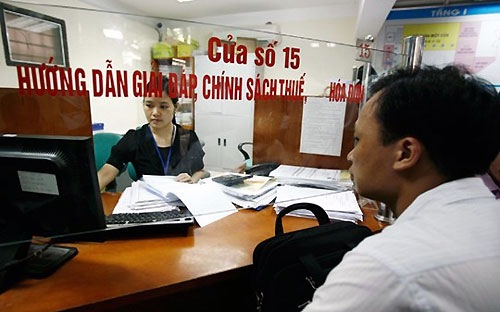A joint stock company in Vietnam is a type of enterprise characterized by charter capital divided into equal parts called shares. The holders of shares are referred to as shareholders. The ownership of shareholders' shares is represented through stocks. So, what types of shares exist in a joint-stock company in Vietnam?

Vietnam: Notable contents regarding types of shares in a joint stock company (Illustrative image)
According to the provisions of the Law on Enterprises 2014, the types of shares in a joint stock company include:
1. Ordinary shares
Definition:
A joint-stock company in Vietnam must have ordinary shares. Holders of ordinary shares are ordinary shareholders.
Characteristics of ordinary shares:
- The holder of ordinary shares has the right to vote and receive dividends and other rights specified in Article 114 of the Law on Enterprises 2014.
- Each ordinary share has a vote.
- Ordinary shares cannot be converted into preferred shares.
- Regarding transferability: shareholders holding ordinary shares are free to transfer their shares except in cases where they are restricted within 3 years when transferring to a person other than the founding shareholder.
Notes on the ordinary shares of founding shareholders:
- The founding shareholders must jointly register to purchase at least 20% of the total number of ordinary shares authorized to be offered at the time of business registration.
- The transfer of ordinary shares within 3 years must be approved by the General Assembly of Shareholders, except for transfers to other founding shareholders.
2. Preferred shares
Apart from ordinary shares, a joint-stock company may have preferred shares. Holders of preferred shares are called preferred shareholders. Preferred shares include:
Voting preference shares:
- Holders: Only organizations authorized by the Government of Vietnam and founding shareholders can hold Voting preference shares.
- Voting preference shares of founding shareholders will be converted into ordinary shares after 3 years from the date of issuance of the Business Registration Certificate.
- Voting preference shares have more votes than ordinary shares. The specific number of votes is determined by the company's Charter.
- Voting preference shares can be converted into ordinary shares.
- Voting preference shares cannot be transferred.
Shares with preferred dividends:
- Shares with preferred dividends are shares that receive dividends higher than those of ordinary shares or have a stable annual dividend. Fixed dividends are not dependent on the company's business performance.
- Holders of Shares with preferred dividends do not have voting rights.
- Shares with preferred dividends can be converted into ordinary shares.
- Shares with preferred dividends can be transferred.
Redeemable preferred shares:
- Redeemable preferred shares are shares that the company buys back at the request of the holder or under the terms specified on the share certificate of the redeemable preferred shares; they take precedence in payment upon company dissolution or bankruptcy.
- Holders of Redeemable preferred shares do not have voting rights.
- Redeemable preferred shares can be converted into ordinary shares.
- Redeemable preferred shares can be transferred.
=> In addition to the 03 typical and common types of preferred shares mentioned above, Vietnamese law allows the Company's Charter to prescribe additional types of preferred shares to attract investors.
The above is a general overview, outlining the characteristics to distinguish each type of share in a joint stock company. Based on this information, we hope that our valued customers can have additional insight to consider and choose the appropriate type of share for investment.
Thuy Tram
 Article table of contents
Article table of contents










.Medium.png)
.Medium.png)
.Medium.png)
.Medium.png)
